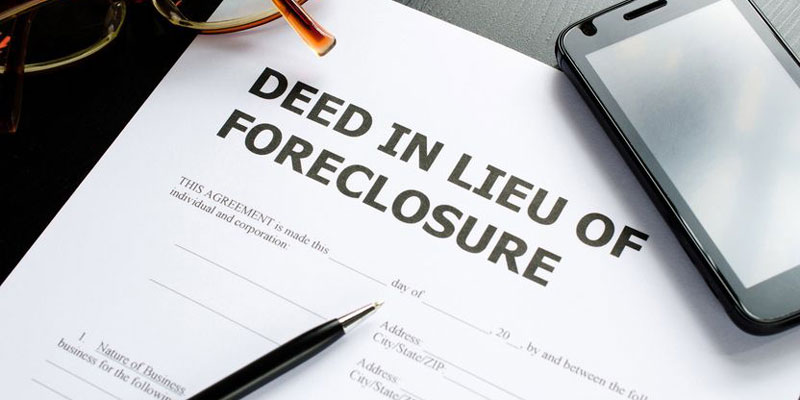Have you ever heard of a due-on-sale clause? If not, don’t fret – many people are unfamiliar with this legal clause. A due-on-sale clause stipulates a loan contract that allows the lender to force the borrower to pay off their mortgage in full when they sell or transfer their interest in securing the property.
Such clauses can be found in residential mortgages, home equity lines or loans, and other agreements related to real estate financing. But what should you know about these clauses and your rights as an owner if one applies to your situation? Read on for more information on a due-on-sale clause and how it may affect your finances.
Due-on-Sale Clause

A due-on-sale clause is a provision within the loan contract that allows the lender to demand that the borrower pays off their mortgage in full when they transfer or sell interest in the property.
This clause can be triggered by various events, such as transferring ownership from one party to another, refinancing with another lender, leasing the property, or allowing someone else to assume responsibility for payments.
It's important to note that due-on-sale clauses are not always enforceable and vary between states and lenders. Sometimes, it may not be legal for lenders to call in a loan under these circumstances, so it’s crucial to thoroughly read your loan agreement before signing anything.
How a Due-on-Sale Clause Works

When a due-on-sale clause is triggered, the bank notifies the borrower that they must pay off their loan in full. The lender can demand the full amount due, including all interest and penalties.
If the borrower fails to comply with this request within a specific timeframe, as outlined by their loan agreement, they may face foreclosure proceedings or other legal consequences.
In some circumstances, such as when a person passes away and leaves their home to someone else or if they move out of state and need to transfer ownership, lenders will allow them to keep their mortgage without triggering the due-on-sale clause. However, borrowers need to know these clauses exist if any changes are made to their home or loan agreement.
Some lenders will honor a due-on-sale clause even if it's not explicitly stated in the contract. This is because they may view any transfer of ownership as a risk and want to protect their interests by calling in the loan and requiring the borrower to repay it in full.
Implications Of A Due-On-Sale Clause
Since a due-on-sale clause can be triggered for various reasons, such as selling the property or allowing someone else to assume responsibility for payments, borrowers need to understand how this will affect them before signing anything.
For example, suppose you’re considering selling your home or transferring ownership rights to someone else. In that case, you should ensure that your loan agreement does not contain a due-on-sale clause and be aware of any potential implications.
It's also important to remember that when a due-on-sale clause is triggered, the lender can demand the full amount owed on the loan. Borrowers need to have enough cash available to cover this unexpected expense or face possible foreclosure proceedings if they cannot pay off their mortgage in full.
Therefore, it's essential to read through your loan agreement carefully and understand your rights and obligations when transferring ownership of your property.
Due-on-Sale Clause Exceptions
Even if a due-on-sale clause is included in your loan agreement, there are certain cases where it will not be enforced. For example, suppose you’re transferring home ownership to a family member upon death or moving out of state and need to transfer ownership rights.
In that case, lenders may allow you to keep your mortgage without triggering the due-on-sale clause. Additionally, some states have laws prohibiting lenders from calling in loans under such circumstances.
Another exception is when a borrower refinances with another lender – this usually does not trigger the due-on-sale clause as long as the new lender agrees to accept responsibility for the existing loan.
To ensure that all parties involved understand their rights and obligations in these situations, it is always best to consult an attorney and have them review your loan agreement before signing anything.
Why Would a Lender Not Invoke a Due-on-Sale Clause?
In certain cases, it may not be in the lender's best interests to call in a loan under the due-on-sale clause. For instance, if interest rates have dropped significantly since they issued the original loan and a borrower is looking to refinance with another lender, it may make more sense for them to do so rather than force the borrower to repay their existing mortgage in full.
Calling in a loan can be expensive and time-consuming for lenders – they must cover court costs and any fees associated with foreclosure proceedings.
What Types of Mortgages Do Not Have a Due-on-Sale Clause?
Not all mortgages contain due-on-sale clauses. For example, FHA and VA loans are typically exempt from this clause, as are certain types of adjustable-rate mortgages and home equity lines of credit.
Additionally, some states have laws banning lenders from including the clause in loan agreements or restricting its use in certain circumstances. It is always best to fully review your loan agreement before signing anything to ensure that you understand any restrictions and implications regarding transferring ownership rights.
A due-on-sale clause can have serious financial implications for borrowers if they fail to comply with its terms or do not understand their rights when transferring property ownership.
Do Home Loans Without a Due on Sale Clause Exist?
Yes, some home loans are exempt from due-on-sale clauses. These include FHA and VA loans, adjustable-rate mortgages, and home equity lines of credit. Additionally, certain states have laws banning lenders from including this clause in loan agreements or restricting its use in certain circumstances.
It is always best to fully review your loan agreement before signing anything to ensure that you understand any restrictions and implications regarding transferring ownership rights.
Furthermore, it's important to remember that even if a due-on-sale clause is not explicitly stated in the contract, some lenders may still invoke it if they view any transfer of ownership as a risk.
FAQS
When can a due-on-sale clause be triggered?
A due-on-sale clause can be triggered when an individual or entity transfers the rights to a property through sale, inheritance, or refinancing. It may also be triggered if a borrower defaults on payments or allows someone else to assume responsibility for the loan.
What is the due-on-sale clause in the promissory note?
A due-on-sale clause in a promissory note is a statement that stipulates that the loan must be repaid in full if the borrower attempts to transfer ownership of the property. Borrowers need to understand this clause and any potential implications before signing anything.
How do you protect a due-on-sale clause?
The best way to protect a due-on-sale clause is to read through your loan agreement carefully and understand your rights and obligations when transferring ownership of your property. Additionally, it's important to remember that even if the clause is not explicitly stated in the contract, some lenders may still invoke it if they view any transfer of ownership as a risk.
Conclusion
All in all, understanding what a due-on-sale clause is can help you make an educated decision when looking to purchase a home with a mortgage. It's important to remember that these clauses are only sometimes present. They are decided upon by the lender or other stakeholders when the initial loan is taken out. As such, the responsibility of researching and understanding the particular situation entails lies with the lender and the buyer. It is best to consult professional real estate advisors regarding this clause before signing any documents.




